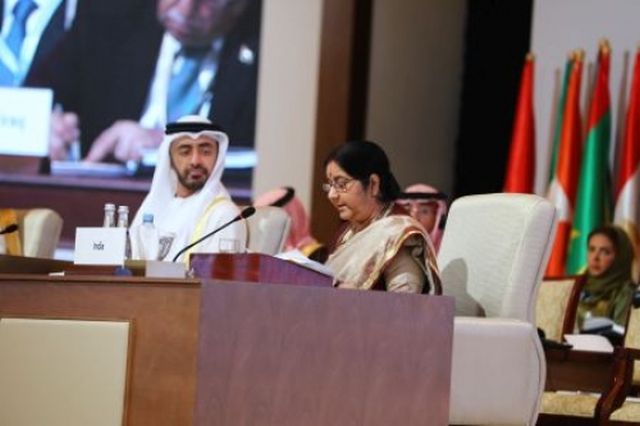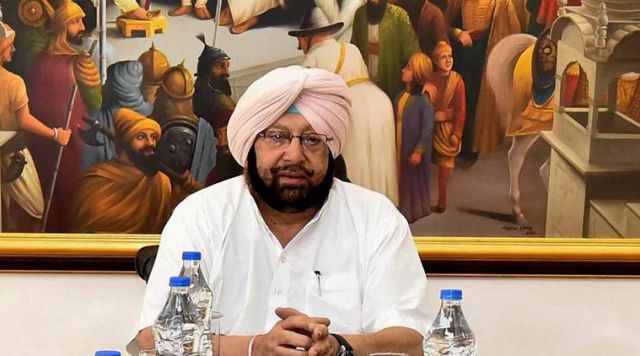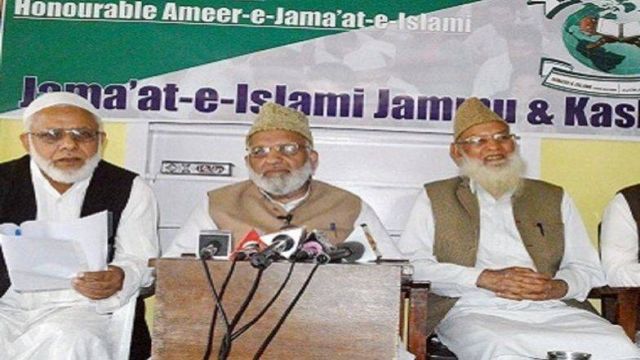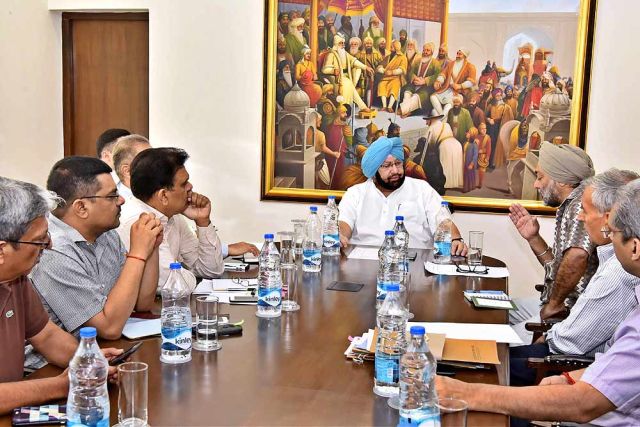by Editor | Sep 26, 2024 | News, News & Trending
Syed Ali Mujtaba
The Hindus in India were shocked to hear the news that scared ‘Ladus’ at the Tirupati temple contains beef, pork, and fish particles. Lab report of samples sent from Tirumala Tirupati Devasthanam to the National Dairy Development Board in Gujarat said: “The samples certify that beef tallow and animal fat – lard, and fish oil were used in the preparation of Ghee which was supplied to Tirumala had 19.7 % of such contents.”
This news also shocked the Muslims who are lynched, bruised, and battered in several parts of the country for alleged beef eating. Muslims are curious as to why Cow vigilantes are keeping silent on the beef controversy that erupted at Tirumala Tirupati Devasthanams (TTD).
That means if Hindus are made to eat beef then it is an act of religiosity and piety but Muslims cannot do that, because for Hindus it’s a sacrilegious act. The cow vigilante that is on the prowl to kill the Muslims at the slightest pretext for eating beef, is in complete silence about how to defend the Hindus, when they have committed the same sin and whose punishment is death for the Muslims.
The Venkateswara Temple at Tirumala, Tirupati, Andhra Pradesh is one of the wealthiest temples in the world. Its net worth is 3 lakh crore Indian rupees. The TTD net worth is more than the capitalization of Wipro, Nestle, ONGC, IOC, and many other companies listed in the Indian stock market. Many state governments in India, approach TTD to lend money on interest to pay salaries to its employees.
The Tirumala Tirupati Devasthanams (TTD) trust oversees the upkeep of the Venkateswara Temple which receives 50,000 to 100,000 visitors per day. This makes this temple one of the most visited religious sites in the world, attracting 30 to 40 million visitors annually.
The TTD prepares and distributes over 3,50,000 laddus daily to the devotees. The laddus are offered as ‘mahaprasadam’ to devotees after the Darshan of the Lord Venkateswara Swamy. A simple calculation can tell how many Hindus have been made impure by consuming beef through the ladus.
A firefighting exercise is going on right now, and the blame game is moving in circles with each stakeholder saying I got nothing to do with this controversy.
The first to issue clarification is the TTD saying that the divinity and purity of Srivari laddu is ‘unblemished.’ It adds that now it has set up a testing laboratory within its premises to avoid such controversy erupting again.
Andhra Pradesh Chief Minister Chandrababu Naidu has alleged that previous CM Jagan Mohan Reddy was responsible for comprising religious ‘purity’ of the Hindus who were forced to consume adulterated ghee that contained beef. Andhra Pradesh Chief Minister Chandrababu Naidu blamed Jagan Reddy for stopping supplies from his Heritage Dairy, which had supplied Ghee to the TTD earlier.
YSRCP leader Jagan Reddy has hit back at Naidu accusing him of politicizing the issue. The ex-Chief Minister has moved the Andhra Pradesh high court to demand an investigation into Naidu’s claims, demanding action against him for ‘twisting’ facts.
AR Dairy, a Dindigul-based firm in Tamil Nadu that was short-listed among the five companies to supply Ghee to the TTD is right now at the center of the controversy of supplying adulterated Ghee to the TTD. AR Dairy spokesperson told the media, “We used to supply ghee to the TTD till June- July but have stopped since then. We supplied only 0.1%, of the total supply made to the TTD from other sources.”
In the same context when the Gujarat lab broke the beef story, some social media without verifying facts started attacking Amul Dairy for committing such a sacrilegious act. Amul Diary immediately issued a rebuttal and is now flinging FIRs against the media outlets that went gung-ho against the taste of India Company that brought white revolution in the country.
Meanwhile, the Andhra Pradesh Chief Minister Chandrababu Naidu has ordered an SIT inquiry into the adulterated Ladus being distributed at the Shaivite temple in south India. He is also consulting Hindu priests to do the ‘samprokshana’ (ritualistic purification) seeking forgiveness for the sin of consuming beef.
The Hindu icon Yogi Adityanath and the Haridwar priest gang that has openly given a call to kill Muslims are total sixes and sevens on how to blame Muslims for waging ‘Ladu Jihad’ in the country.
Trivia: I disguise myself as a saint or anybody oh Ghalib and watch the activities of the world. “Bana kar faqeeron ka hum bhes Ghalib Tamasha-e-Ahl-e-Karam dekhte hein”

by admin | May 25, 2021 | Muslim World, Politics
 Abu Dhabi : External Affairs Minister Sushma Swaraj on Friday told the Organisation of Islamic Cooperation (OIC) conference that Muslims in India were a microcosm of its diversity and very few of them have fallen prey to the poisonous propaganda of radical and extremist ideologies.
Abu Dhabi : External Affairs Minister Sushma Swaraj on Friday told the Organisation of Islamic Cooperation (OIC) conference that Muslims in India were a microcosm of its diversity and very few of them have fallen prey to the poisonous propaganda of radical and extremist ideologies.
Addressing the plenary of the conference as a “Guest of Honour”, a first for India, she referred to India’ strong bonds with several member countries of the OIC including Bangladesh, Maldives and Afghanistan which are in its neighbourhood.
Swaraj expressed gratitude to Saudi Arabia, Bangladesh and others friends for their strong support for hearing India’s voice in this forum.
She also referred to Iran, saying the mutual partnership was vital for stability and prosperity in the region.
The minister said she was honoured to join her colleagues from nations that represent a great religion and ancient civilisations.
She said she was carrying greetings of Prime Minister Narendra Modi and 1.3 billion Indians, including more than 185 million Muslim brothers and sisters, and was representative of a land that has been for ages a fountain of knowledge, a beacon of peace, a source of faiths and traditions and home to religions from the world.
“Our Muslims brothers and sisters are a microcosm of the diversity of India. They speak Tamil and Telugu, Malayalam and Marathi, Bangla and Bhojpuri or any of the numerous languages of India.
“They have diverse culinary tastes, myriad choices of traditional attire, and they maintain strong cultural and linguistic heritage of the regions they loved and have lived for generations.”
She said Muslims in India practice their respective beliefs and live in harmony with each other and with their non-Muslim brethren.
“It is this appreciation of diversity and co-existence, that has ensured that very few Muslims in India have fallen prey to poisonous propaganda of radical and extremist ideologies.”
She said 2019 was a very special year as OIC is celebrating its Golden Jubilee, United Arab Emirates is celebrating Year of Tolerance and India is celebrating the 150th birth anniversary of Mahatma Gandhi, a global symbol of Truth and Non-violence.
“It is, therefore, a matter of pride for me,and for India, to be invited in this special year, to be your Guest of Honour, and to be extended a hand of friendship.”
She expressed her deep appreciation to UAE Foreign Minister Sheikh Abdullah Bin Zayed for his sagacious leadership and for his invitation.
Swaraj said that in the past four years, few relationships have seen as much engagement as India’s relationship with UAE and indeed, with the entire Gulf and West Asia Region. “It is a return of history.”
She said OIC has a key role in shaping the world with countries coming together on the foundation of a common faith as also a shared desire for a better future for their people.
She said India has forged deep bonds of friendship and close partnerships with many members of OIC.
“As India’s economy has grown and become more integrated with the world, these partnerships have become stronger. We have excellent political ties, marked by warmth, respect and goodwill. With many, we have expanding defence and security cooperation.”
“Our economic engagement is robust and growing rapidly. Our digital partnerships are shaping the course of our future. And, our ties have the warm glow of deepening human and cultural links.”
She said countries to India’s east including Brunei, Indonesia, and Malaysia were important pillars of India’s Act East Policy and ties with Afghanistan, Bangladesh and Maldives were forged in shared struggles, warmth and commitment to the security and prosperity of people and the region.
She said in Central Asia, India was rebuilding its relationship along new routes of possibilities.
“We do this, especially with and through Iran, a country, with which we not only share civilizational and cultural links, but a partnership, that is vital for stability and prosperity in our region.”
The minister said India’s solidarity with the aspirations of the Palestinian people has remained unwavering.
She referred to the close partnership with Egypt, India and Iraq standing together in our triumphs and trials and support for Jordan’s efforts “in strengthening the voices of moderation and building bridges of understanding between faiths”.
She said India has been working with countries like Tunisia, Morocco and Algeria with a shared desire for a more inclusive world.
“With Turkey, a nation, with which, we have many strands of connected history, we are imparting new momentum to our ties. Our many friends from Africa are here,” she said.
The minister said the Gulf region was India’s largest market, supplier of energy and source of remittances.
“More than 8 million Indians living in the region, are the 8 million vibrant threads of this partnership,” she said, adding that the relationship has vastly expanded in the past five years.
“It is an indispensable strategic and security partnership, and a natural economic partnership of immense value to our nations and for our shared region,” she said.
—IANS

by admin | May 25, 2021 | Interviews, Politics
 By Jaideep Sarin,
By Jaideep Sarin,
Chandigarh : Two years ago, when the Congress party was losing elections and the Bharatiya Janata Party (BJP) was surging ahead on its theme of making a ‘Congress Mukt Bharat’ (Congress-free India) a reality, one leader stood up, reversed the trend and delivered when the party was in the dumps at the national level.
Punjab Chief Minister Amarinder Singh won the state for the Congress in the February 2017 assembly election with a thumping majority and gave the leadership hope that the BJP onslaught could be checked.
Known for taking a clear stand on issues, even if it means commending the actions of his political opponents, Amarinder Singh spoke to IANS on national and state issues.
Q: You halted the BJP’s march towards a ‘Congress Mukt Bharat’ by winning Punjab with a thumping majority. What do you have to say to Prime Minister Narendra Modi and BJP President Amit Shah today?
Amarinder Singh: That it’s important to feel the connect with the voters, and feel the pulse of the people. Elections aren’t won on slogans, unless people can relate to those slogans. That means that promises are meant to be kept. In Punjab, the SAD-BJP regime had failed, in 10 years, to deliver on their pre-poll promises. So the people of Punjab rejected them.
Another message that the Punjab Assembly elections sent out, and which I think PM Modi and the BJP president should have read, is that the democratic, constitutional and secular fabric of our nation is much bigger than any vote bank. The people of Punjab did not want divisiveness, they wanted progress, and voted for that. In its bigger manifestation, the same applies to the nation.
That is why every political party needs to respect the spirit of the Constitution and the sentiments of the people if they are to win, and win again.
Q: How do you expect the Congress to fare in the coming Lok Sabha polls since it is not in a strong position in states like Uttar Pradesh?
Amarinder Singh: The Congress, under Rahul Gandhi, is fully geared to win, and win resoundingly. After what happened in (last year’s assembly) elections in Rajasthan, Madhya Pradesh and Chhattisgarh, any political party that writes off the Congress would do that at its own peril. And any political pundit who thinks Congress is not in the game would be doing an injustice to his/her own intelligence and acumen. There is a palpable change in the mood of the people across the country, and even more so in Uttar Pradesh since Priyanka Vadra’s formal entry into the political arena.
Q: Punjab is under a debt of over Rs 2 lakh crore. What is the Centre’s response to your demand for a relief package? How do you plan to take Punjab out of the debt trap?
Amarinder Singh: The Centre, unfortunately, has not been forthcoming with help and we’re left fighting a lone battle. I have personally met the Prime Minister to seek settlement of the Rs 31,000 crore legacy debt which we inherited from the previous government but even that issue has not been resolved, though the 15th Finance Commission has responded to our pleas and set up a committee to address the problem on priority. I hope that works out and we get the much-needed support from the Centre.
Having said that, let me tell you we, in the state, are stretching ourselves to the maximum to resolve the issue. Streamlining of revenue, curtailment of non-essential costs, besides more prudent approach to budgeting and expenditure are just some of the ways we’ve managed to ease the pressure, and we shall continue to do so in the coming months. Of course, this is a tough and long-drawn process but unless the central government comes to our rescue, we have no other option.
Q: Does the Congress face a threat from SAD and AAP in the coming elections?
Amarinder Singh: I don’t think anyone sees either SAD or AAP as any kind of threat. Both the parties are split down the centre, with no clear leadership in command. They are like rudderless ships, with no concrete agenda, no issues to talk about, and nothing to offer to the people of Punjab. The people rejected these parties two years ago, and in these two years the two parties have gone further downhill, with no hope of revival in the near term.
(Jaideep Sarin can be contacted at jaideep.s@ians.in)
—IANS

by admin | May 25, 2021 | News, Politics
 By Sheikh Qayoom,
By Sheikh Qayoom,
Srinagar : For Jamaat-e-Islami (JI) Jammu and Kashmir the ban imposed on the socio-political religious organisation by the union government is not the first and perhaps not the last.
The government on Thursday declared the JI Jammu and Kashmir as “an unlawful association whose activities have the potential of disrupting the unity and integrity of India”.
Before imposing the five-year-long ban, more than 250 leaders and cadres of the organisation were picked up by police during nocturnal raids throughout the Valley.
After lodging them in local police stations, many senior leaders of the JI have been shifted to the central jail in Srinagar city.
The Joint Resistance Leadership (JRL), the separatist conglomerate headed by Syed Ali Geelani, Mirwaiz Umer Farooq and Muhammad Yasin Malik, called for post Friday prayer protests against the ban.
The authorities reacted by imposing restrictions in parts of Srinagar city to prevent any protests.
The ban order has been criticised by some mainstream politicians, including former Chief Minister Mehbooba Mufti.
Mehbooba said: “Democracy is a battle of ideas. The crackdown, followed by the banning of Jammat Islami is condemn able and another example of high handedness and muscular approach of the GOI (Govenment of India) to deal with the political issue of J&K”.
Separatist leaders in both the Syed Ali Geelani headed group and Mirwaiz Umer headed Hurriyat group have condemned the ban with one voice.
The authorities have placed Mirwaiz Umer under house arrest while Geelani continues to be under house arrest in Srinagar city.
Muhammad Yasin Malik is also under preventive detection.
JI Jammu and Kashmir is distinct from Jamaat-e-Islami Hind that was founded in 1948 as an Islamic organisation, but finally split into three offshoots in India, Pakistan and Bangladesh.
The founder of the Jamaat-e-Islami Hind, Sayyid Abul Ala Maududi, however, continues to the beacon light for the JI J&K as well.
The JI was first banned in 1975 during the emergency for opposing the Indira-Abdullah accord that finally brought back the National Conference (NC) founder, Sheikh Muhammad Abdullah, into mainstream politics.
The organisation was again banned by the central government headed by V.P.Singh in 1990. That order was revoked in 1993 by the P.V. Narasimha Rao headed Congress government.
JI leaders, including Muhammad Yusuf Shah, who later became the supreme commander of the Hizbul Mujahideen outfit in his new avatar as Syed Salahudin, fought the 1987 assembly elections with other leaders who opposed the NC under the banner of the Muslim United Front (MuF).
It is generally believed that many JI candidates, including Muhammad Yusuf Shah were defeated by a false declaration of results.
Senior JI leader Geelani, however, won the 1987 assembly elections repeating his victories in 1972 and 1977.
Geelani has been a part of the state’s electoral process till the JI decided to say goodbye to mainstream politics after 1990.
Many people believe that the single biggest reason for the JI cadres supporting militancy and separatism was their engineered defeat during the 1987 elections.
After ending their association with electoral politics, senior JI leaders supported the state’s merger with Pakistan, although the JI cadres did not initially pick up weapons to join the armed struggle till militancy took the centre stage in the Valley in 1989.
Since the pro-azadi Jammu and Kashmir Liberation Front (JKLF) advocated an
independent state free from both India and Pakistan, the Hizbul Mujahideen (HM) that had a predominant number of youth belonging to families of JI cadres was formed in September 1989.
HM stands for state’s merger with Pakistan.
After the HM was formed, the official crackdown on JI-run schools and other
organisations involved in fund raising started.
Geelani, who heads his faction of the separatist Hurriyat group, has formed his own organisation called the Tehreek-e-Hurriyat, but continues to wield both respect and influence in the JI.
(Sheikh Qayoom can be reached at sheikh.abdul@ians.in)
—IANS

by admin | May 25, 2021 | News, Politics
 Chandigarh : Demanding the resignation of Punjab minister Bharat Bhushan Ashu for his alleged involvement in the change of land use (CLU) scam in Ludhiana, the Aam Aadmi Party (AAP) on Monday staged a walkout from the Assembly.
Chandigarh : Demanding the resignation of Punjab minister Bharat Bhushan Ashu for his alleged involvement in the change of land use (CLU) scam in Ludhiana, the Aam Aadmi Party (AAP) on Monday staged a walkout from the Assembly.
Amid sloganeering by AAP legislators, the party staged a walkout over the alleged involvement of Ashu in the multi-crore Grand Manor Homes scam.
Leader of Opposition (LoP) Harpal Singh Cheema raised the issue of the multi-crore scam involving the minister and asserted that the minister had reportedly threatened the officers probing the case.
He demanded the resignation of the minister who, he said, was in league with the land mafia. He sought permission to play the phone recordings on the floor of the House, which was refused by the Speaker, Rana K.P. Singh.
When Ashu offered to reply to clear the air about his alleged role in the scam, the protesting members returned to their seats. The minister also offered to face any inquiry initiated by the House.
The AAP demanded that the minister should tender his resignation so that a fair inquiry could be carried out.
Chief Minister Amarinder Singh assured the House that the next action would be taken on receipt of the inquiry committee report.
Friction between cabinet ministers — Navjot Singh Sidhu and Ashu — came out in the open on Friday when Ashu openly questioned how Sidhu ordered an inquiry involving him (Ashu) in the prime land controversy in Ludhiana.
Sidhu on Friday ordered “stringent action against the officers guilty of wilful disobedience of the orders issued by him on July 7, 2018, regarding keeping the matter of according approval to Plan 98-C of the Municipal Corporation, Ludhiana in abeyance and sending the CLU case further ahead by forging the documents”.
The minister has directed the Principal Secretary of the department to take prompt action in the matter.
Reacting strongly to the probe, Ashu in an official statement on Friday said: “I have nothing to do with the building in the present controversy. However, I will like Sidhu to explain how my name got included in the enquiry.”
“If he finds any merit in it, let him report it to the CM, but if there is any mischievous intention of any official to include my name deliberately, then let the official be penalized,” the statement said.
Sidhu pointed out that the CLU was applied for on January 17, 2018, in which the documents were forged. He said the registry of the land was done two days later on January 19, whereas it is mandatory to attach the registry papers at the time of applying for the CLU.
“This means that the applicant was not the owner of the land at the time of applying,” Sidhu stated.
—IANS




